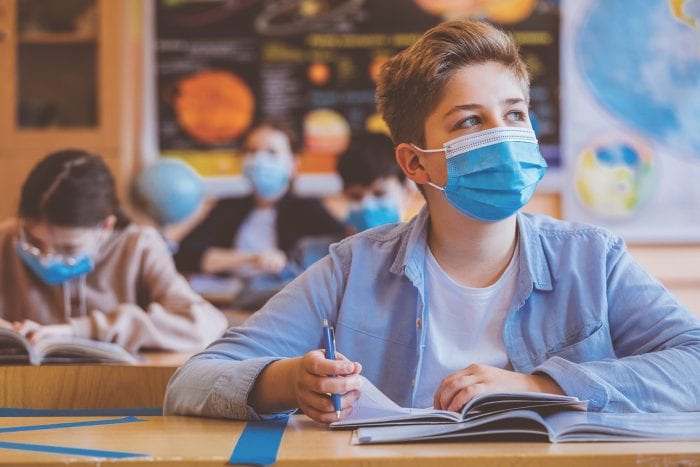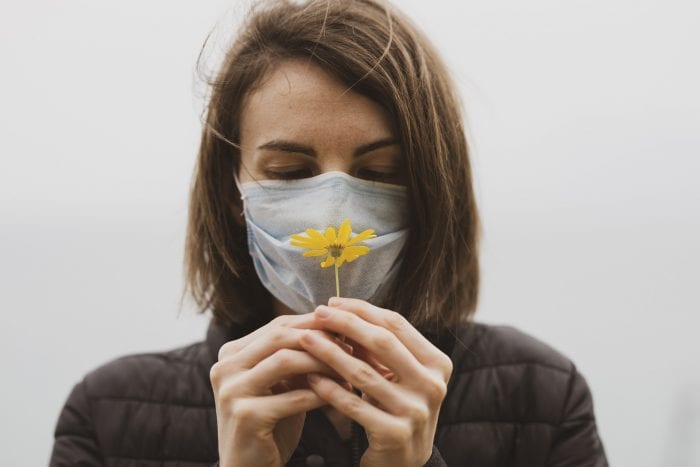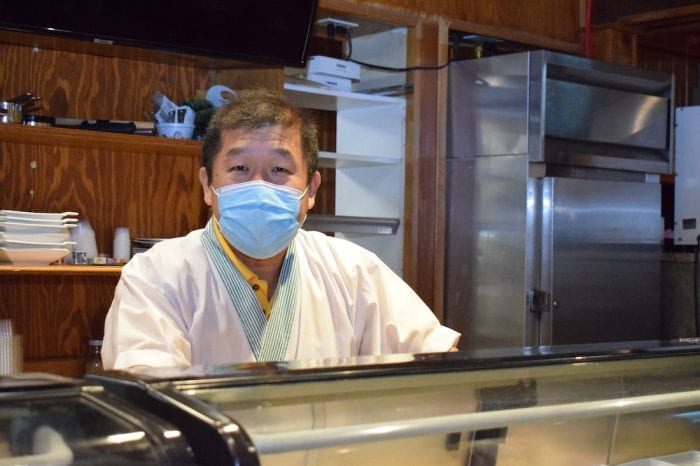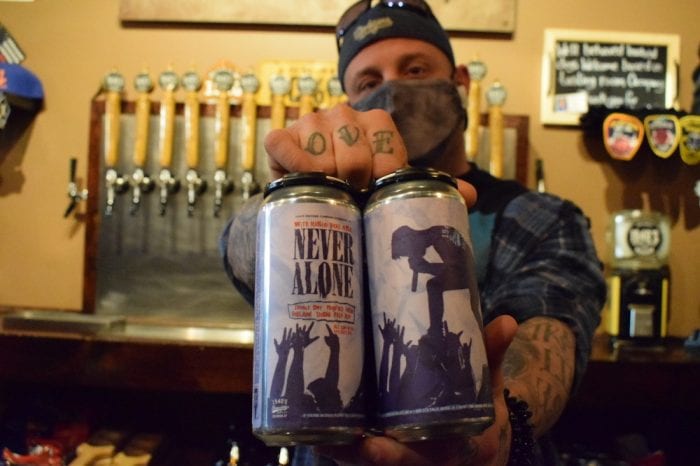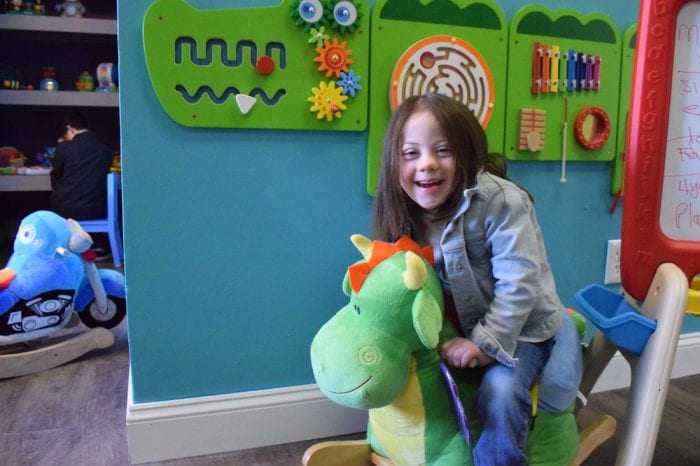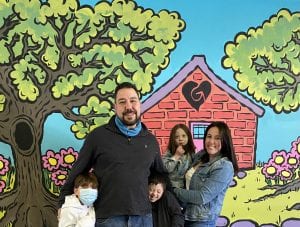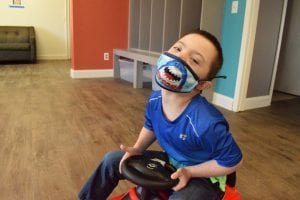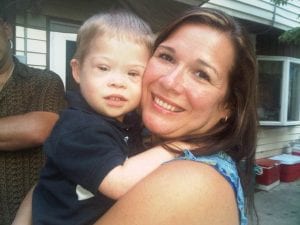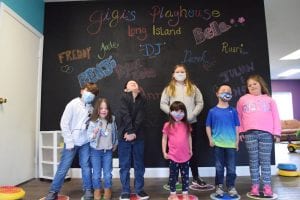This week, Long Islanders acknowledged the one-year mark since the coronavirus hit officially hit and impacted the area. In March 2020, schools began to close, as stay-at-home orders were put into effect.
Throughout the remainder of the school year, districts had to figure out new learning models in a virtual world and create a socially distanced environment when schools opened back up nearly six months later.
Now, many districts in the area have opted to bring students back in-person all five days a week, hoping to give children, teachers and families a sense of normalcy.
Rocky Point Union Free School District
Rocky Point school district has been back full time for K-5 since September, according to superintendent of schools, Scott O’Brien.
By November, secondary schools began attending in-person classes four days a week, and now have implemented five days as of last week. “Reopening our schools this year and embracing a phased-in approach to safely bring our K-12 students back to school full time was a truly collaborative effort, and I can’t thank all of our stakeholders enough for their unwavering support,” he said. “Our elementary students have been thriving, learning in person full time since the start of the school year and our district was able to successfully and safely increase our in-person learning days from two to four by November for our secondary students.”
He said that “it was clear pretty early into the increased learning plan how much this move tremendously benefited our students, not only academically but socially and emotionally as well.”
O’Brien said that the district is continually working to ensure their learning environments remain safe.
Middle Country Central School District
Roberta Gerold, superintendent of Middle Country school district, said that pre-K through grade 8 will be returning to five days April 5.
For grades 9 through 12, it was be a slower process to ensure everyone’s safety.
“By the end of the school year, the goal is to be back to five days,” she said. “We want kids to have muscle memory of what it was like to be in school.”
Gerold said that bringing kids back to schools was the goal all along.
“Kids are missing the classroom experience,” she said. “The interaction, the energy and it’s good for teachers, too.”
She said that they are following all the necessary precautions, including barriers and mask requirements. Due to space limitations, she said that the 6-feet social distancing rule is unobtainable, but desks and distances are closer to 5-feet apart.
She said it’s exciting to see how happy her students are at slowly coming back to school.
“I think it’s wonderful,” she said. “It’s neat to see how excited the kids are and it’s good to start feeling a sense of normalcy again.”
Middle Country is still offering a full virtual option for families who declared so early on. Gerold said right now about 20% of the student population is virtually learning.
SWR Central School District
Superintendent Gerard Poole said that since September, Shoreham-Wading River has been back full time, five days a week, and there have been no problems for all levels.
“We have a fully remote option, but about 97% have been attending in person,” he said.
By following all the correct protocols and by reopening a vacant elementary school to help with distancing, students and parents have been thrilled.
“It’s been fantastic, a huge success,” he said. “It’s good for the students’ mental health, and helps the parents get back to work.”
He said that it takes a collective effort to make things like this happen.
“It can work,” he said. “It does work, and all the other health and safety protocols work. So, I think the fears of COVID are real, but so are the effects of students not being in school every day.”
Comsewogue School District
Superintendent Jennifer Quinn said that beginning April 6, after spring break, high schoolers will be returning to a normal week. Grades K-6 have been back since September.
“Nothing replaces live instruction,” Quinn said. “The [COVID] numbers are low at this point and we’ve watched from some of the surrounding districts that their numbers are not significantly different than ours. … We want the students to be in school. Live instruction is the best way to learn.”
She added that the district’s teachers and the community as a whole have done “an amazing job during this difficult situation.”
“It’s a hard decision, people are afraid,” Quinn said. “It’s not right for everybody, but the key is this was the plan, and we were working toward this for a long time.”
Comsewogue will still have an option for families to remain virtual.
“One size doesn’t fit all,” said Joe Coniglione, assistant superintendent.
And while it’s still a difficult time, Quinn said that everyone is excited to be going back to five days.
“We’re going to be as safe as we can possibly make it, and we need students to feel that this is their safe place,” she said. “Overall, the kids are suffering. It’s not normal to be home every other day and not being able to see their friends.”
Port Jefferson School District
Since Jan. 18, the Port Jefferson School District transitioned students in grades six through 12 back to in-person learning four days a week.
“Thus far, we have not seen a rapid rise in our positive COVID cases in our middle school and high school,” Superintendent Jessica Schmettan recently wrote in a letter to parents. “Unfortunately, it has become evident that during this pandemic, our students have not been as successful academically and are struggling with their mental health. We have seen an increase in social and emotional needs similar to those reported in the news across the country.”
She said that from a health perspective, mandating masks, cleaning procedures, hand hygiene and distancing when possible have resulted in minimal transmission within the school. With that in mind, the board of education voted on returning secondary students to in-person learning five days per week beginning on March 8.
“We as parents are thrilled about that and we as a community are thrilled about that,” Port Jefferson Village trustee Kathianne Snaden said in a virtual board of trustees meeting on March 1. “There’s nothing going to be better for our kids, and then to get them back into school with their friends and teachers and all the things they need in school, we’re so happy about that.”
Schmettan added, “Currently, students very easily shift in and out of the remote environment. Although convenient for parents and families, this irregular pattern of instruction is disruptive
and unfair to teachers and students.”
There will only be a few reasons for virtual learning, including students who opted in for the remainder of the year, students mandated to quarantine due to COVID-19, or students who have a significant documented medical event that will not allow them to attend school for a long duration of time.
Comsewogue School District
Superintendent Jennifer Quinn said that beginning April 6, after spring break, high schoolers will be returning to a normal week. Grades K-6 have been back since September.
“Nothing replaces live instruction,” Quinn said. “The [COVID] numbers are low at this point and we’ve watched from some of the surrounding districts that their numbers are not significantly different than ours. … We want the students to be in school. Live instruction is the best way to learn.”
She added that the district’s teachers and the community as a whole have done “an amazing job during this difficult situation.”
“It’s a hard decision, people are afraid,” Quinn said. “It’s not right for everybody, but the key is this was the plan, and we were working toward this for a long time.”
Comsewogue will still have an option for families to remain virtual.
“One size doesn’t fit all,” said Joe Coniglione, assistant superintendent.
And while it’s still a difficult time, Quinn said that everyone is excited to be going back to five days.
“We’re going to be as safe as we can possibly make it, and we need students to feel that this is their safe place,” she said. “Overall, the kids are suffering. It’s not normal to be home every other day and not being able to see their friends.”



